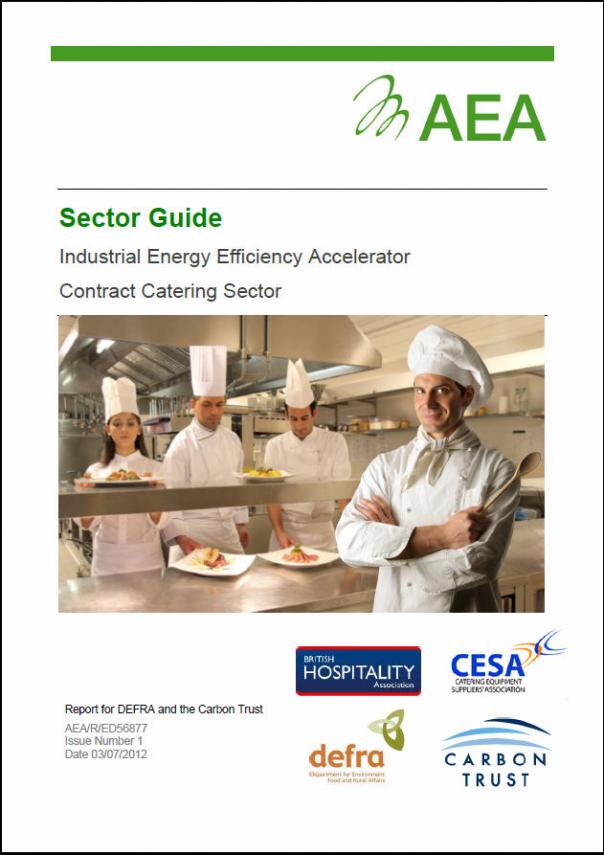
Produced by Defra, Carbon Trust, AEA, CESA (Catering Equipment Suppliers Assocaition) and contract caterers, the report offers evidence aimed at understanding the energy use of commercial kitchens, integrated with the operator behavioural challenges that the hospitality industry needs to adopt in order to cut energy use and carbon emissions.
Replacing electric combi ovens with gas combis and upgrading refrigeration cabinets to Market Transformation Programme (MTP) best-practice standards are just some of the ideas explored.
Over the last year, the Carbon Trust has worked with companies including Sodexo, Elior, Aramark and Caterlink to identify more energy efficient ways of running kitchens, with the potential to save £90m or the equivalent of 425,000 tonnes CO2 a year.
Now, in partnership CESA and Defra (Department of the Environment, Food and Rural Affairs), the Carbon Trust is urging contract caterers and their clients to help prove the business case for new equipment and better operations and management of kitchens.
“More than a quarter of the UK’s carbon emissions come from industry and we’ve got to find new opportunities to reduce them,” said Al-Karim Govindji, technology acceleration manager of innovations at the Carbon Trust.
“Our estimates suggest that over 80% of sites could replace electric combis with gas combis.
“The implementation cost is the additional cost for the gas combi assuming that the alternative replacement would be an electric combi.
“Such replacements across the industry would cost a typical site £3,000 but could have a three-year payback, saving the sector £14m per year or 60,000 tonnes CO2 per year.”
Sodexo’s Paul Bracegirdle, environmental manager, UK & Ireland said: “Sodexo's participation in this study is fully aligned with the Better Tomorrow Plan, our sustainability strategy to 2020.
“It significantly raised our awareness and understanding of where and how energy is used in a commercial kitchen, and the factors that influence it.
“We have gathered new insights and data at a level we have never seen before; these are invaluable as we seek to reduce energy consumption and emissions.”
Refrigeration is the second largest user of energy in the sector and this is driven by the installed refrigeration capacity at each site.
However, researchers found that energy use does not rise linearly with capacity, but drops off as capacity increases. This is due to the greater energy efficiency of the larger units.
Upgrading refrigeration single and double door refrigeration cabinets with energy efficiencies equal to the Market Transformation Programme best practice benchmark standards would give a payback of 1.5 years and could save the industry £13m in energy costs per year.